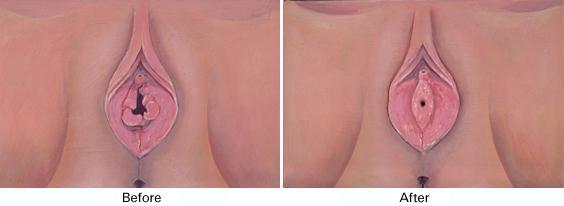Hymenotomy in Lebanon
Search and Compare the Best Clinics and Doctors at the Lowest Prices for Hymenotomy in Lebanon

Find the best clinics for Hymenotomy in Lebanon
No clinics available
United Arab Emirates offers the best prices Worldwide
Price: $ 547

- Home
- Lebanon
WHY US?
At Medijump, we're making medical easy. You can search, compare, discuss, and book your medical all in one place. We open the door to the best medical providers worldwide, saving you time and energy along the way, and it's all for FREE, no hidden fees, and no price markups guaranteed. So what are you waiting for?

Free

Best Price

Widest Selection

Risk-Free
What you need to know about Hymenotomy in Lebanon

Hymenotomy is a surgical procedure to remove or open the hymen – the membrane near the opening of the vagina. It is usually performed on a woman with a septate or imperforate hymen that obstructs the flow of menstruation, as well as an unusually thick or rigid hymen, such as microperforated hymen, which limits access to the vaginal opening, causing pain and discomfort for sexual activities and removing/inserting tampons.
What does a Hymenotomy Procedure Involve?
You will receive general anesthetic before the procedure, but in some cases, a local anesthetic is used instead. Then, your surgeon will create an opening by cutting the membrane of the hymen using special surgical tools. The final step is securing any incisions using small dissolving stitches, which will be absorbed by your body naturally as you heal.
How Long Should I Stay in Lebanon for a Hymenotomy Procedure?
You may be able to leave the hospital on the same day. However, you should plan to stay in Lebanon for 5 to 7 days for initial recovery. Your doctor may also schedule a follow-up hospital checkup to monitor your healing.
What's the Recovery Time for Hymenotomy Procedures in Lebanon?
Most patients feel well enough to return to work and resume their normal activities within a few days, but you may be recommended to rest for 1 week. You should be able to have sexual intercourse after 2 to 4 weeks following a Hymenotomy. It is important to consult with your surgeon as to when you can get back to your full routine, including work and exercises.
What sort of Aftercare is Required for Hymenotomy Procedures in Lebanon?
It is very important to follow the post-operative care instructions that your surgeon gives you to help with your recovery, which usually includes recommended exercise, dietary restriction, and wound care. You also need to keep the genital area dry and clean and avoid inserting anything into your vagina, including a menstrual cup, tampon, or diaphragm at least until you have recovered completely.
What's the Success Rate of Hymenotomy Procedures in Lebanon?
Hymenotomy is very safe, effective, and it has a high success rate. Although risks of side effects and complications are rare, they can occur, which include infection, bleeding, inflammation, scarring, injury to other organs, lingering pain, and scar tissue. Some people may also have complications when they become pregnant and give birth after the procedure, so make sure you consult with your surgeon if you are planning to become pregnant.
Are there Alternatives to Hymenotomy Procedures in Lebanon?
Hymenotomy is currently the only option to treat imperforate, microperforated, and septate hymen. However, if you do not want to undergo surgery, you should discuss with your doctor what your best option will be.
What Should You Expect Before and After the Procedure
Before the surgery, you may be unable to have sex, menstruate, or use a tampon. After a hymenotomy, all of these problems are relieved and you can enjoy them without any pain. You will also be able to have normal menstruation.
Whilst the information presented here has been accurately sourced and verified by a medical professional for its accuracy, it is still advised to consult with your doctor before pursuing a medical treatment at one of the listed medical providers
No Time?
Tell us what you're looking for and we'll reachout to the top clinics all at once
Enquire Now

Popular Procedures in Lebanon
Prices Start From $342

Prices Start From $222

Prices Start From $714

Prices Start From $69

Recommended Medical Centers in Lebanon for procedures similar to Hymenotomy

- Interpreter services
- Translation service
- Religious facilities
- Medical records transfer
- Medical travel insurance
- Health insurance coordination
- TV in the room
- Safe in the room
- Phone in the room
- Private rooms for patients available

- Interpreter services
- Translation service
- Religious facilities
- Medical records transfer
- Medical travel insurance
- Health insurance coordination
- TV in the room
- Safe in the room
- Phone in the room
- Private rooms for patients available

- Interpreter services
- Translation service
- Religious facilities
- Medical records transfer
- Medical travel insurance
- Health insurance coordination
- TV in the room
- Safe in the room
- Phone in the room
- Private rooms for patients available

- Interpreter services
- Translation service
- Religious facilities
- Medical records transfer
- Medical travel insurance
- Health insurance coordination
- TV in the room
- Safe in the room
- Phone in the room
- Private rooms for patients available

- Interpreter services
- Translation service
- Religious facilities
- Medical records transfer
- Medical travel insurance
- Health insurance coordination
- TV in the room
- Safe in the room
- Phone in the room
- Private rooms for patients available
Hymenotomy in and around Lebanon
Lebanon, a country on the eastern shore of the Mediterranean Sea, is one of the smallest sovereign states. The country boasts a fascinating mixture of the Middle East and the West, Christianity, and Islam, and tradition and modernity. It has everything from golden beaches and World Heritage Sites to energetic nightlife and delicious cuisine. Among other countries in the Middle East, Lebanon appears to be one of the most popular medical tourism destinations. Over 10% of the tourists visiting the country, particularly from neighboring countries, come to receive medical care. Many hospitals and clinics in the country are accredited to the ISO:9000 standard and offer world-class specialist services in spine treatment, orthopedics, organ transplant, and other complex surgeries, as well as advanced cancer treatments. Cosmetic and reconstructive surgery are also popular.
Popular Parts of Lebanon
Beirut, the capital and largest city of Lebanon, is filled with historic landmarks and natural wonders. The most famous attractions in the city are the National Museum of Beirut, the Corniche and Pigeon Rocks, Sursock Museum, and Mohammed Al Amin Mosque. Many people also come to Lebanon to visit the port town of Sidon. Once a rich and thriving Phoenician city, it is dotted with historical monuments and ancient remnants, particularly in its Old City. Other popular cities include Tripoly, Baalbek, Byblos, and Tyre.
Weather and Climate in Lebanon
Lebanon has four seasons: winter (December to March), spring (April to May), summer (June to September), and autumn (October to November). Winter is the rainy season with high precipitation levels and cool temperatures. It is snowy in the mountains, but in some places, such as Beirut, it just rains during this season. Summer is hot, sunny, and dry, and can get very humid in cities located close to the sea. In the summer, the average temperatures are around 28°C to 30°C. Spring and autumn are both warm and pleasant.
Getting around in Lebanon
The main international airport where visitors fly into and out of Lebanon is Beirut–Rafic Hariri International Airport, which is the only operational commercial airport in the country. It serves international flights to numerous major cities across Europe and the Middle East, including Moscow, Paris, London, and Dubai. Given the small size of the country, there are no internal flights. Intercity buses and minibus are available and have an extensive network, especially in coastal areas. The best way to get around the country is by hiring a car (with a driver) or by using intercity taxis.
Tourist Visas in Lebanon
All visitors need to obtain a visa to enter and stay in Lebanon unless they come from one of the seven visa-exempt countries (including Kuwait, Bahrain, Qatar, Saudi Arabia, Oman, the United Arab Emirates, and Jordan). Citizens of 81 countries, including all EU countries, Australia, China, Canada, and the United States, are eligible for a visa on arrival for a maximum stay of 30 days. A conditional visa on arrival is available for citizens of 15 countries, including Algeria, Libya, Iraq, and Yemen.
Additional Information
- Local Currency: Lebanese Pound (LBP) is the official currency in Lebanon. 1 USD is equivalent to around 1,507 LBP. US dollars and the euro is widely accepted as well.
- Money & Payments: ATMs are widely available in many places around Beirut and other large cities. Many ATMs dispense both US dollars and Lebanese pounds. Credit cards, particularly Visa and MasterCard, are accepted at most major establishments. Tipping can be expected, usually around 10% to 15% of the bill.
- Local Language: Arabic is the official language in Lebanon. English and French are widely spoken as well, and many Lebanese can speak at least two to three languages.
- Local Culture and Religion: Islam (around 60% of the population) and Christianity (around 34%) are the primary religions in Lebanon. About 5% of Lebanese practice the Druze faith, while other religions are practiced by the remaining 1% of the population.
- Public holidays: New Year’s Day, Christmas Day, Eid al-Fitr, Eid al-Adha, All Saints’ Day, Resistance and Liberation Day, as well as Independence Day are some of the more important holidays in Lebanon.
Popular Searches
- Plastic Surgery in Thailand
- Dental Implants in Thailand
- Hair Transplant in Thailand
- Breast Augmentation Thailand
- Gastric Sleeve in Thailand
- Gender Reassignment Surgery in Thailand
- Laser Hair Removal in Bangkok
- Botox in Bangkok
- Dermatology in Bangkok
- Breast Augmentation in Bangkok
- Coolsculpting in Bangkok
- Veneers in Turkey
- Hair Transplant in Turkey
- Rhinoplasty in Turkey
- Stem Cell Therapy in Mexico
- Rhinoplasty in Mexico
- Liposuction in Mexico
- Coolsculpting in Tijuana
- Rhinoplasty in Korea
- Scar Removal in Korea
- Gastric Sleeve in Turkey
- Bone Marrow Transplant in India
- Invisalign in Malaysia
- Plastic Surgery in the Dominican Republic
- Tummy Tuck in the Dominican Republic
- Plastic and Cosmetic Surgery in Poland
- Rhinoplasty in Poland
- Hair Implant in Poland
- Dental Implants in Poland
- IVF in Turkey